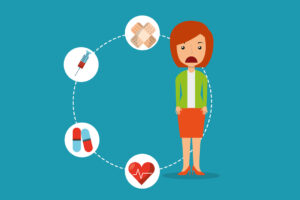Promoting Women’s Health: The Role of Preventive Care

Hey there! Let’s talk about something important today — women’s health and how preventive care can make a difference. Whether you’re a working professional, a homemaker, or balancing the chaos of both, your health is your biggest asset. So, grab a cup of tea, get comfy, and let’s dive into this crucial topic in the simplest, most relatable way possible.
What Is Preventive Care, and Why Does It Matter?

Think of preventive care as your body’s maintenance schedule — like changing the oil in your car or updating your software. It’s all about catching potential health issues before they become big problems. From regular check-ups and screenings to lifestyle tweaks, preventive care ensures you’re not just surviving but thriving.
For women, preventive care is especially vital because our bodies go through so many changes at different stages of life. Hormonal shifts, pregnancy, menopause — you name it. Being proactive about your health means staying ahead of the curve and living your best life.
Key Areas of Preventive Care for Women

Here’s a breakdown of some essential aspects of preventive care that every woman should prioritize:
- Routine Health Screenings:
- Pap Smear & HPV Testing: These help detect cervical cancer early when it’s most treatable. Start these tests from your early 20s or as advised by your doctor.
- Mammograms: Breast cancer screenings are a must, especially after the age of 40 or earlier if you have a family history.
- Bone Density Tests: Women are more prone to osteoporosis, so keeping an eye on your bone health post-menopause is crucial.
- Heart Health: Heart disease is the leading cause of death among women. Keep an eye on your blood pressure, cholesterol levels, and blood sugar. Eating well, exercising, and managing stress can work wonders.
- Reproductive Health: Whether it’s family planning, managing PMS, or tackling menopause symptoms, regular visits to a gynaecologist are non-negotiable.
- Mental Health: Let’s not forget our minds! Women are more likely to experience anxiety and depression, so checking in with a therapist or counsellor when needed is as important as a physical check-up.
- Vaccinations: Staying updated on vaccines like the flu shot, HPV vaccine, and COVID-19 boosters can protect you from preventable illnesses.
How Can You Start?
Getting started with preventive care is easier than you think. Here are some simple steps:
- Schedule Regular Check-Ups: Find a doctor you trust and book those annual health checks. They’ll guide you on what tests you need based on your age and health history.
- Adopt a Healthy Lifestyle: Small changes like eating more fruits and veggies, staying active, and getting enough sleep can have a big impact.
- Know Your Family History: If certain conditions run in your family, like diabetes or breast cancer, make sure your doctor knows.
- Listen to Your Body: Don’t ignore that nagging pain or unusual symptom. Early detection is key.
Breaking the Myths About Preventive Care

Let’s bust some myths:
- “I feel fine, so I don’t need a check-up.” Nope! Preventive care isn’t about feeling sick; it’s about staying healthy.
- “It’s too expensive.” Many preventive services are covered by insurance or available at community health centres at low or no cost.
- “I’m too young to worry about this.” Health doesn’t have an age limit. Starting early means fewer issues later.
The Bigger Picture
When women take charge of their health, it’s not just good for them but for their families and communities too. Healthy women mean stronger families, and that ripple effect touches everyone.
So, let’s normalize talking about preventive care. Share this with your mom, sister, best friend, or colleague. Together, we can build a culture where women’s health is a priority and not an afterthought.
Remember, your health is your superpower. Treat it with the love and care it deserves. You’ve got this!


